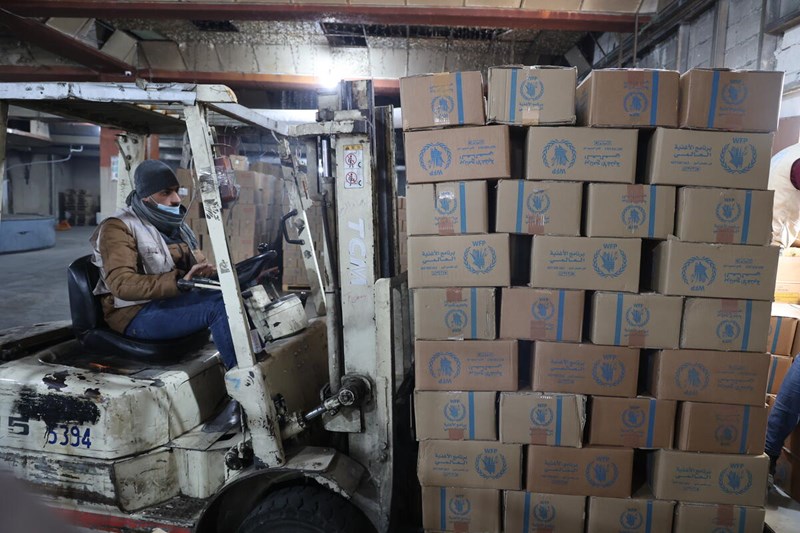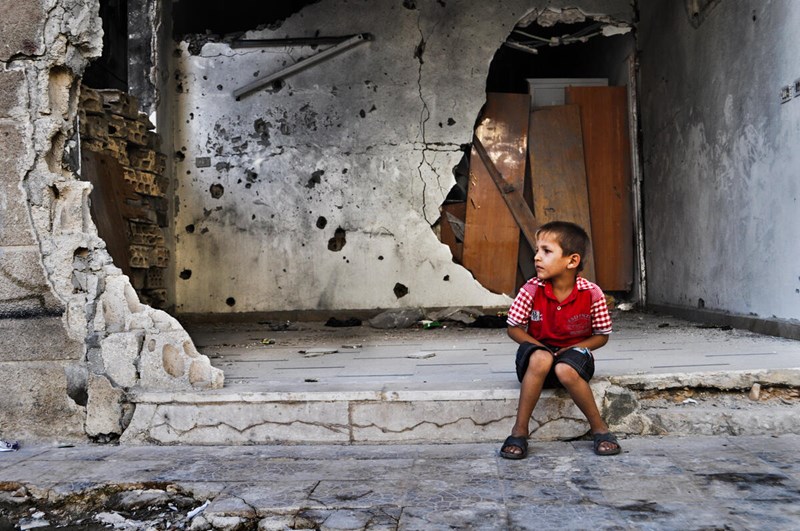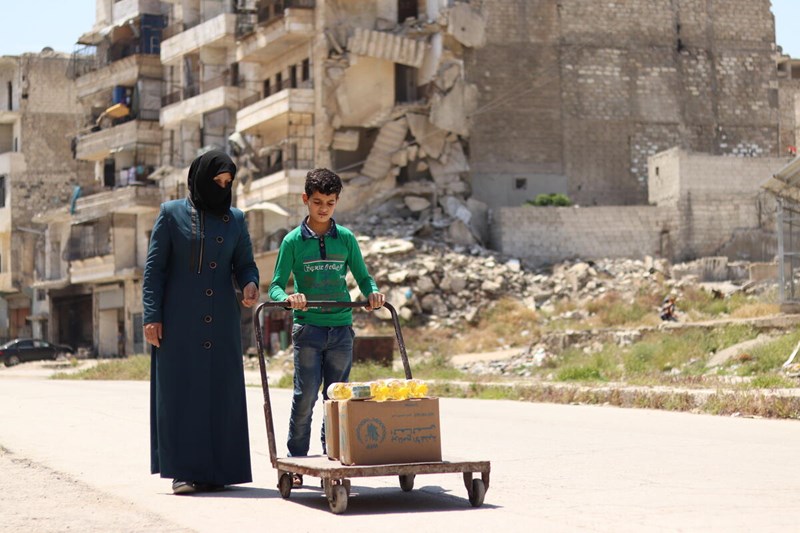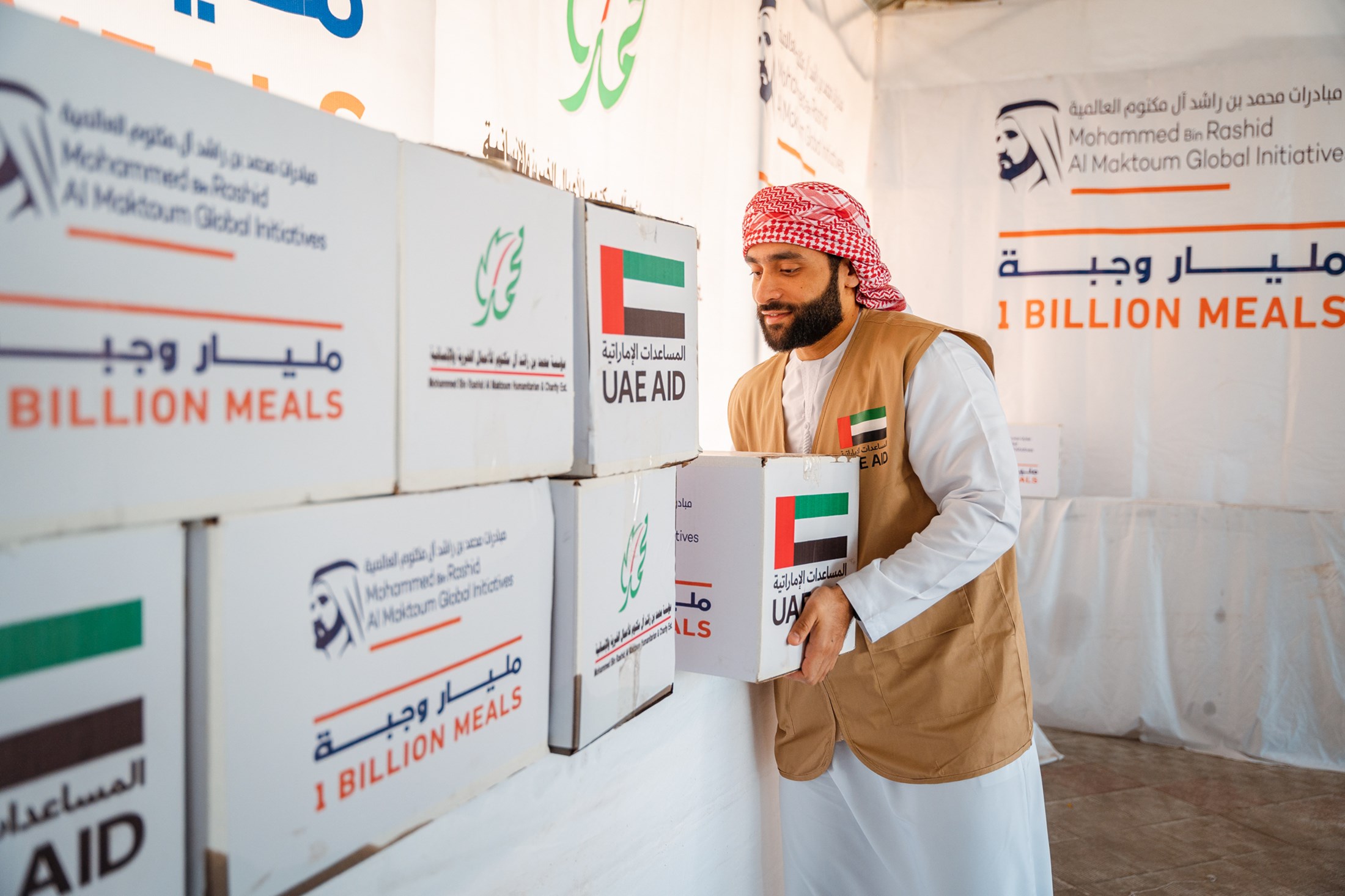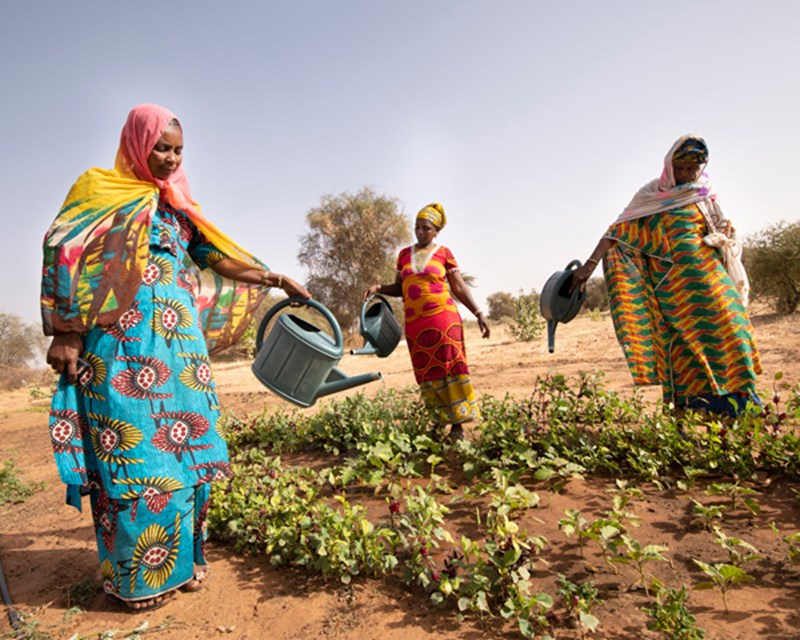In Palestine, decades of protracted conflict, economic stagnation, restricted trade and access to resources - coupled with high unemployment and poverty rates - have created serious food security and nutrition challenges. One third of all Palestinians - equivalent to 1.84m people – are food insecure. Of the 1.1m who are severely food insecure, 90 percent live in the blockaded Gaza Strip.
The WFP currently provides 375,000 Palestinians every month with food and livelihoods support -- but the needs far outstrip funding, and the situation has been compounded by rising food costs and weakened purchasing power in-country.
The agency is appealing for an additional US$41m to be able to provide food assistance to 400,000 Palestinians over the next six months. Samer AbdelJaber, WFP’s representative in Palestine, said current funding would only last until the end of April and if no more money came in, they would have to cut supplies to all beneficiaries
This will affect people like Abeer Zouroub, a 47-year-old mother, living in Khan Yunis, in Gaza who previously had an income from her mother-in-law’s donkey and cart but it stopped coming in when her mother-in-law couldn't work anymore and now she relies on WFP vouchers to feed her family.
“I have ten children who don't have jobs or income, so they depend on me to provide everything: cooking gas, paying the bills and sustaining food,” Abeer, pictured above, explains. "Some days are harder than others, but I am managing. Without the voucher, the kids would have nothing to eat.”
WFP's AbdelJaber told Philanthropy Age: “These past years have witnessed a lot of uncertainty, rocketing food prices, the collapse of a social safety net, and cycles of violence. Food assistance from WFP was the one thing people counted on but now, that is at risk too."
He added: "People are drowning in debt, parents are going to bed on an empty stomach to give the little food they have to their children. On top of the difficulties Palestinian families face, cutting off assistance would be catastrophic."
In 2022, WFP received US4.7m from the MBRGI's One Billion Meal Campaign, allowing it to provide food assistance to 385,926 Palestinians (equivalent to 65,000 families) across Gaza, West Bank, and East Jerusalem.
Each family received an electronic voucher, like a credit card, to use at local shops to purchase food items of their choice such as dairy products, eggs, bread, cereals, and other fresh and frozen foods.

